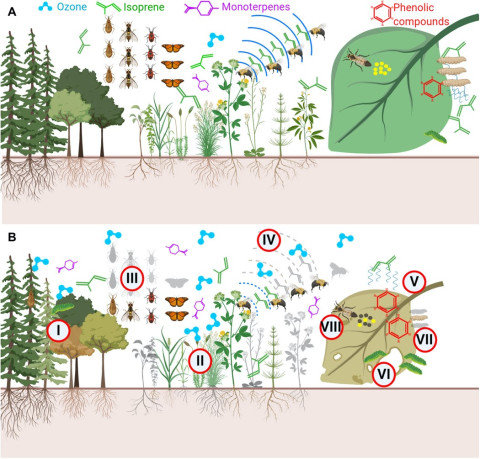A new study published in Science Advances provides the first comprehensive assessment of how ozone pollution can alter the structure and function of terrestrial ecosystems. The results of this study suggest that ozone should be included in global assessments of threats to terrestrial biodiversity.
The study sets the path forward for a new generation of studies that will address ozone impacts on the biodiversity, and is expected to generate much interest for advanced interdisciplinary researches addressing this environmental issue.The largest risk areas are the Atlantic islands, the Mediterranean, Equatorial Africa, the Indian coast, the Himalayan mountains, South Asia and Japan, with high endemic species richness.
Research article: Ozone affects plant, insect, and soil microbial communities: A threat to terrestrial ecosystems and biodiversity. Science Advances 12 Aug 2020:Vol. 6, no. 33, eabc1176, DOI: 10.1126/sciadv.abc1176. https://advances.sciencemag.org/content/6/33/eabc1176




